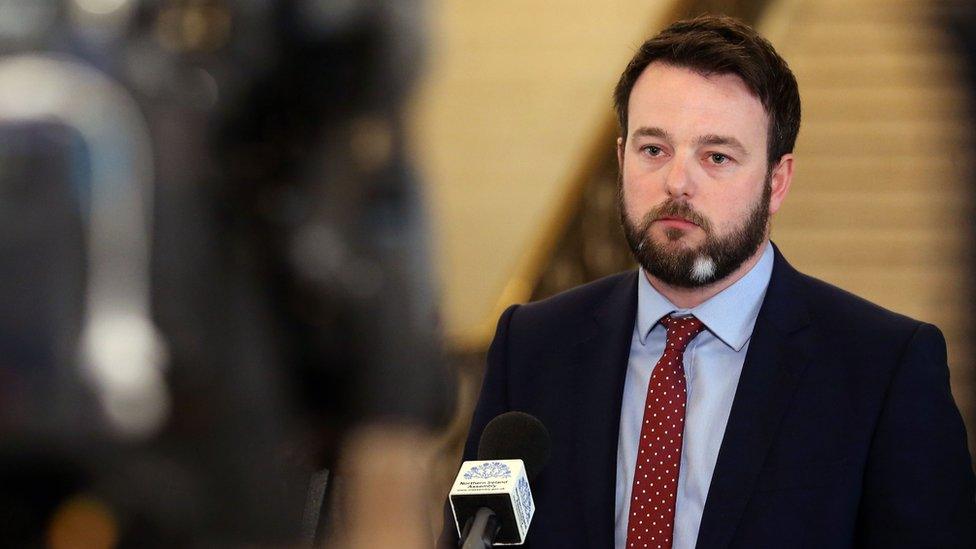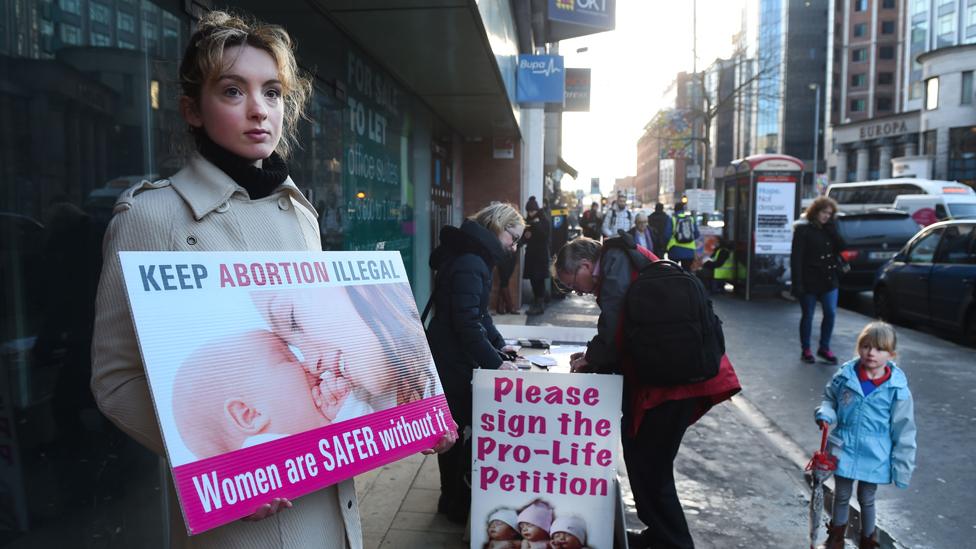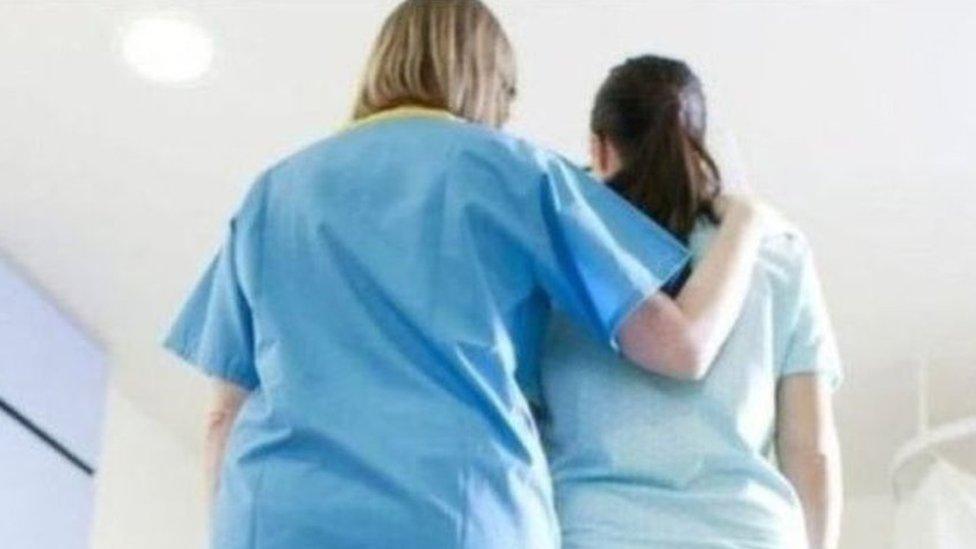SDLP to discuss abortion conscience vote
- Published

Colum Eastwood said the conference would take place ahead of the referendum on abortion laws in the Republic of Ireland
The SDLP are to hold a special conference to review the party's position on abortion.
Party leader Colum Eastwood said there were no plans to change the SDLP's pro-life stance.
He said some party members had raised the issue of being allowed to vote with their conscience on the issue.
Mr Eastwood said the conference would take place ahead of May's referendum on abortion laws in the Republic of Ireland.
Northern Ireland's abortion laws are more strict than the rest of the UK.
An abortion is allowed only if a woman's life is at risk or there is a serious or permanent risk to her mental health.
Rape, incest and fatal foetal abnormalities are not circumstances in which an abortion can be performed legally.
'Conscience issue'
Holding a discussion on a freedom of conscience vote was the right thing to do, Mr Eastwood told BBC Northern Ireland's The View programme.
"We are not talking about changing the fundamental position, the party position is pro-life but the party membership set out our policies," he said.
"What we are talking about and what is up for discussion is the issue around conscience.
"Can we allow people to have that option of a moral conscience? That is the discussion across every political party in Ireland - so it would be strange for us not to have that discussion," Mr Eastwood said.
Voters in the Republic of Ireland will decide on 25 May if they want to make changes to Ireland's strict abortion laws, upheld in the Eighth Amendment of the Irish constitution.
The eighth amendment to the Republic's constitution, introduced in 1983, "acknowledges the right to life of the unborn."
Abortion law in Northern Ireland is based on the Offences against the Person Act 1861, which made it an offence to terminate a pregnancy.
In 1945, an exception was added to allow abortion in order to preserve the life of the mother.
Abortions are also allowed if continuing with the pregnancy will result in other serious physical or mental health effects.
The punishment for breaking the law remains life imprisonment.

Timeline of NI abortion law challenges
30 November 2015: A High Court judge in Northern Ireland rules Northern Ireland's law breached the European Convention on Human Rights in cases of fatal foetal abnormality or sexual crime
11 February 2016: Members of the Northern Ireland Assembly vote against legalising abortion in cases of fatal foetal abnormality (by 59 votes to 40) and cases of sexual crime (by 64 votes to 30)
14 June 2017: Supreme Court rejects an appeal by an anonymous mother and daughter that NI women should be able to access free NHS abortions in England.
29 June 2017: Northern Ireland's Department of Justice (DoJ) and Attorney General successfully appeal against 2015 High Court human rights ruling, prompting the NIHRC to go to the Supreme Court
29 June 2017: The government announces women from Northern Ireland will be entitled to free NHS abortions in England, after a Labour-led campaign

- Published8 April 2016

- Published29 June 2017
